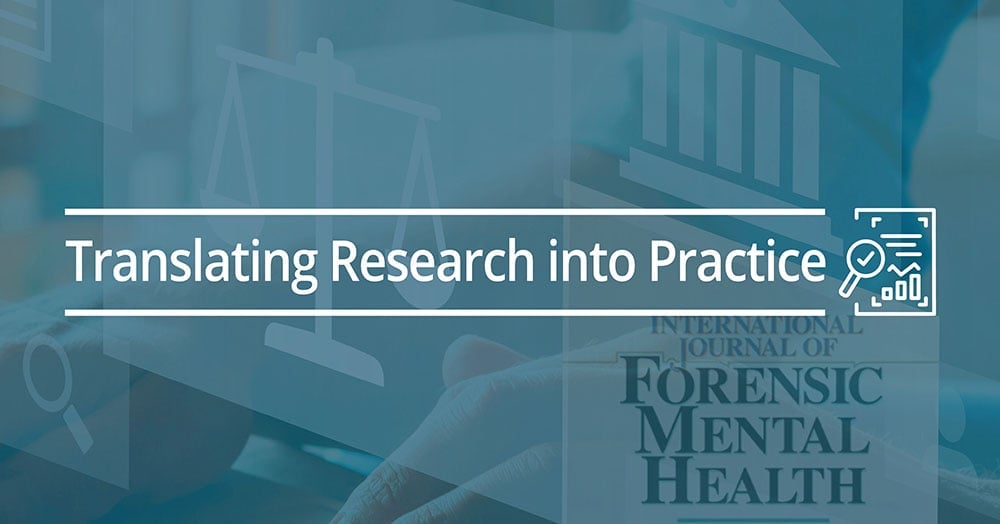Featured Article
Article Title
Adverse Childhood Experiences, Mental Health, and Social Functioning: A Scoping Review of the Literature
Authors
a: Care for Long Term Conditions Research Division, Faculty of Nursing, Midwifery & Palliative Care, King's College London, Waterloo Road, London SE1 8WA, United Kingdom of Great Britain and Northern Ireland
b: Institute of Psychiatry, Psychology and Neuroscience, King's College London, 16 De Crespigny Park, London SE5 8AF, United Kingdom of Great Britain and Northern Ireland
c: Faculty of Nursing, Midwifery & Palliative Care, King's College London, Waterloo Road, London SE1 8WA, United Kingdom of Great Britain and Northern Ireland
d: Care for Long Term Conditions Research Division, Faculty of Nursing, Midwifery & Palliative Care & Health Service and Population Research Department, King's College London, Waterloo Road, London SE1 8WA, United Kingdom of Great Britain and Northern Ireland
Abstract
Background
Adverse childhood experiences (ACEs) negatively impact people's physical and mental health and social functioning. Research literature focuses on the impact of ACEs on physical and mental health, yet to our knowledge, no study has examined the literature on ACEs, mental health, and social functioning outcomes.
Objective
To map how ACEs, mental health, and social functioning outcomes have been defined, assessed, and studied in the empirical literature and identify gaps in the current research which need further investigation.
Methods
A scoping review methodology following a five-step framework was implemented. Four databases were searched CINAHL, Ovid (Medline, Embase) and PsycInfo. The analysis involved both numerical and a narrative synthesis in line with the framework.
Results
Fifty-eight studies were included in the analysis, and three key issues were identified a) the limitations of research samples to date, b) the choice of outcome measures for ACEs, social and mental health outcomes, and c) the limitations of current study designs.
Conclusion
The review demonstrates variability in the documentation of participant characteristics and inconsistencies in the definitions and applications of ACEs, social and mental health and related measurements. There is also a lack of longitudinal and experimental study designs, studies on severe mental illness, and studies including minority groups, adolescents, and older adults with mental health problems. Existing research is highly variable methodologically and limits our broader understanding of the relationships between ACEs, mental health, and social functioning outcomes. Future research should implement robust methodologies to provide evidence that could be used for developing evidence-based interventions.
Keywords
Adverse childhood experiences, mental health disorders, social outcomes, scoping review
Summary of Research
Adverse Childhood Experiences (ACEs) encompass a spectrum of traumatic events occurring in the lives of individuals under 18 years of age. These experiences range from physical and emotional neglect to abuse, exposure to domestic violence, mental health issues, family incarceration, separation, and substance misuse. The occurrence of ACEs is influenced by various factors such as unstable housing, parental history of ACEs, and growing up in communities with high social and environmental dysfunction. Global epidemiological research, exemplified by Asmussen et al. (2020) and a World Health Organization (WHO) study (Kessler et al., 2010), reveals the widespread impact of ACEs, affecting millions of children each year.
Research consistently establishes a connection between ACEs and poor mental health outcomes. Individuals with a history of ACEs face an elevated risk of mental health issues such as depression, bipolar disorder, suicide, and substance misuse. Beyond psychological implications, ACEs are associated with physiological alterations, with notable effects on the prefrontal cortex, hypothalamic-pituitary-adrenal (HPA) axis, and inflammation levels in children and adults exposed to maltreatment.
Social functioning emerges as a critical factor in the ACEs-mental health relationship. Loneliness and social isolation, rooted in difficulties developing healthy relationships due to trust issues and poor emotional regulation, become prevalent outcomes of ACEs. The implications of social isolation and loneliness on adult psychiatric morbidity emphasize their significance in mental health care delivery. Trauma-informed clinical care, recognizing the need to assess for ACEs and considering psychosocial aspects in recovery, is becoming a key priority in mental health policies, as seen in the UK NHS Mental Health Implementation Plan (2019/20–2023/24).
The current study employed a scoping review, a systematic method for mapping and exploring existing literature on a specific topic. Unlike traditional systematic reviews that answer specific research questions, a scoping review seeks to comprehensively identify evidence, map critical concepts, and pinpoint research gaps. This study applied the scoping review method to delve into the definition, operationalization, and assessment of ACEs, mental health, and social functioning in the empirical literature. The research questions focused on these aspects, revealing gaps and limitations and guiding future inquiries.
The study conducted a comprehensive search across databases such as CINAHL, Ovid (Medline, Embase), and PsycINFO from 1996 to March 2022, focusing on the link between ACEs, mental health, and social functioning outcomes. The selection process involved a two-step screening of titles, abstracts, and full-text examinations, with inclusion criteria limited to empirical studies and exclusion of systematic reviews, opinion papers, and non-English studies. The data extraction process involved 58 studies, focusing on general study information, methodology, measures, and results. The study utilized a narrative synthesis following Popay et al.'s (2006) framework, which revealed substantial diversity in ACEs operationalization and related outcomes.
Findings spotlighted the dominance of USA-conducted studies, particularly between 2016 and 2021. Cross-sectional surveys prevailed, with limited research on children, adolescents, and older adults. ACE measurement tools varied, affecting social functioning and mental health outcome measures.
The scoping review linked ACEs to poor mental health outcomes like depression, bipolar disorder, suicide, and substance misuse. It underscored ACEs' impact on social functioning, hindering healthy relationships due to trust issues and emotional regulation difficulties. Implications for mental health care delivery included recognizing social isolation and loneliness's role in adult psychiatric morbidity.
Review limitations underscored the need for diverse, age-specific research and standardized ACE measurement tools. These insights guide future research and practice, advocating for trauma-informed clinical care and ACE assessment in mental health policies.
Translating Research into Practice
The study emphasizes the link between ACEs and poor mental health outcomes, highlighting conditions such as depression, bipolar disorder, suicide, and substance misuse. Additionally, the research underscores the impact of ACEs on social functioning, leading to difficulties in developing healthy relationships, social isolation, and loneliness. The findings stress the importance of a trauma-informed approach in clinical care, recognizing the need to assess for ACEs and addressing psychosocial aspects for effective mental health care delivery. Mental health policies, such as the UK NHS Mental Health Implementation Plan, prioritize developing and implementing trauma-informed care.
Implications for Clinical Practice
1. Screening for ACEs:
- Integration into Routine Assessments: Incorporate ACE screening as a routine part of patient assessments in healthcare settings. This involves asking about a patient's history of exposure to ACEs during intake interviews, providing a foundation for understanding potential risk factors.
- Creating Trauma-Informed Environments: Train healthcare providers to create trauma-informed environments, ensuring sensitivity and responsiveness to individuals with a history of ACEs. This involves understanding the potential triggers and stressors associated with trauma and adapting clinical practices accordingly.
2. Holistic Assessment:
- Beyond Mental Health: Recognize that the impact of ACEs extends beyond mental health, affecting various aspects of an individual's life, including social functioning. A holistic assessment should consider the interconnectedness of mental health and social well-being, guiding a more comprehensive treatment approach.
- Addressing Social Determinants of Health: Acknowledge the role of social determinants of health in exacerbating the effects of ACEs. Develop interventions that not only target mental health symptoms but also address broader social determinants such as housing stability, social support, and access to resources.
3. Tailored Interventions:
- Individualized Treatment Plans: Design individualized treatment plans that consider the unique experiences and needs of individuals with a history of ACEs. Recognize that a one-size-fits-all approach may not be practical, and interventions should be tailored to address specific challenges.
- Incorporating Social Support: Emphasize the importance of building and maintaining social support networks. Engage family members, friends, or support groups in the treatment process, recognizing their role in promoting resilience and mitigating the impact of ACEs.
4. Preventive Strategies:
- Early Intervention Programs: Advocate for and participate in early intervention programs that aim to identify and address ACEs in childhood. Implementing preventive strategies early can reduce the long-term impact on mental health and social functioning.
- Community Outreach and Education: Engage in community outreach and education initiatives to raise awareness about the prevalence and consequences of ACEs. By fostering understanding and destigmatizing discussions around trauma, clinicians can contribute to a more supportive societal context.
5. Interprofessional Collaboration:
- Collaboration with Social Services: Establish strong collaborations with social services to address the multifaceted challenges associated with ACEs. This involves coordinating efforts to provide comprehensive support, including access to housing assistance, financial resources, and community programs.
- Training Across Disciplines: Facilitate cross-disciplinary training for healthcare providers, educators, and social workers to enhance their understanding of ACEs and their impact. Interprofessional collaboration ensures a more cohesive and coordinated approach to addressing the complex needs of individuals affected by ACEs.
6. Advocacy and Policy Engagement:
- Influencing Mental Health Policies: Actively engage in advocacy efforts to influence mental health policies that recognize and prioritize the impact of ACEs. Advocate for including trauma-informed practices and resources in healthcare policies to create a supportive and responsive system.
- Community-Level Initiatives: Contribute to community-level initiatives that prevent ACEs and promote mental health. This may involve partnering with local organizations, schools, and policymakers to implement evidence-based strategies addressing ACEs' root causes.
Other Interesting Tidbits for Researchers and Clinicians
Interesting Tidbits for Clinicians and Researchers Biological Changes: ACEs are associated with changes in biological systems, including alterations in the prefrontal cortex, activation of the hypothalamic-pituitary-adrenal (HPA) axis, and elevation in inflammation levels. Understanding these physiological changes is crucial for developing comprehensive interventions. Social Functioning: Social functioning is a critical factor in the relationship between ACEs and poor mental health outcomes. The research identifies two dimensions of social relationships – objective (structure and function) and subjective (involvement, perceived availability, adequacy, and emotions). ACEs create difficulty in forming healthy relationships, leading to social isolation and loneliness. Research Gaps: The scoping review identifies gaps in current research, including a limited understanding of how ACEs are defined in the mental health literature. There is also a lack of clarity on the types of mental health problems and social functioning outcomes most examined in ACEs research. The study calls for further research to advance the field. Sample Diversity: The review reveals variability in sample characteristics, with a majority focused on women and binary gender populations. There is a call for more research on diverse gender identities, including LGBTQ+ and non-binary populations. Similarly, the need for research on different ethnic/racial groups and age groups is emphasized. Inconsistent Outcome Measures: The study identifies conceptualization and operationalization discrepancies, particularly in measuring social functioning outcomes. There is a lack of consistency and clarity in measuring ACEs, social functioning outcomes, and mental health outcomes, affecting the comparability and replicability of studies. Limitations of Current Research Designs: Cross-sectional designs dominate the current literature, and there needs to be a limited number of longitudinal studies. The review highlights the need for more longitudinal research to understand the relationships over time. Additionally, power calculations were rarely performed, indicating limitations in the precision of study conclusions. Call for Validated Measures: The study emphasizes the importance of using validated measures for ACEs, social functioning outcomes, and mental health outcomes. It raises concerns about the wide variability and use of non-validated or ad hoc measures, affecting the quality and reliability of research findings.
Additional Resources/Programs
Training
UPCOMING → LIVE: Behavioral Health Aspects of Adverse Childhood Experiences (ACEs)
Behavioral Health Aspects of Hypothalamic-Pituitary-Adrenal (HPA) Axis Dysfunction
Adverse Childhood Experiences (ACEs) in the Criminal Justice System
Blog Posts
Childhood Trauma and its Effect on Adulthood - CONCEPT Professional Training
Childhood Trauma and its Effect on Adulthood - CONCEPT Professional Training
Silent Disruptor: Sleep Apnea’s Secret Impact on Mental Health























